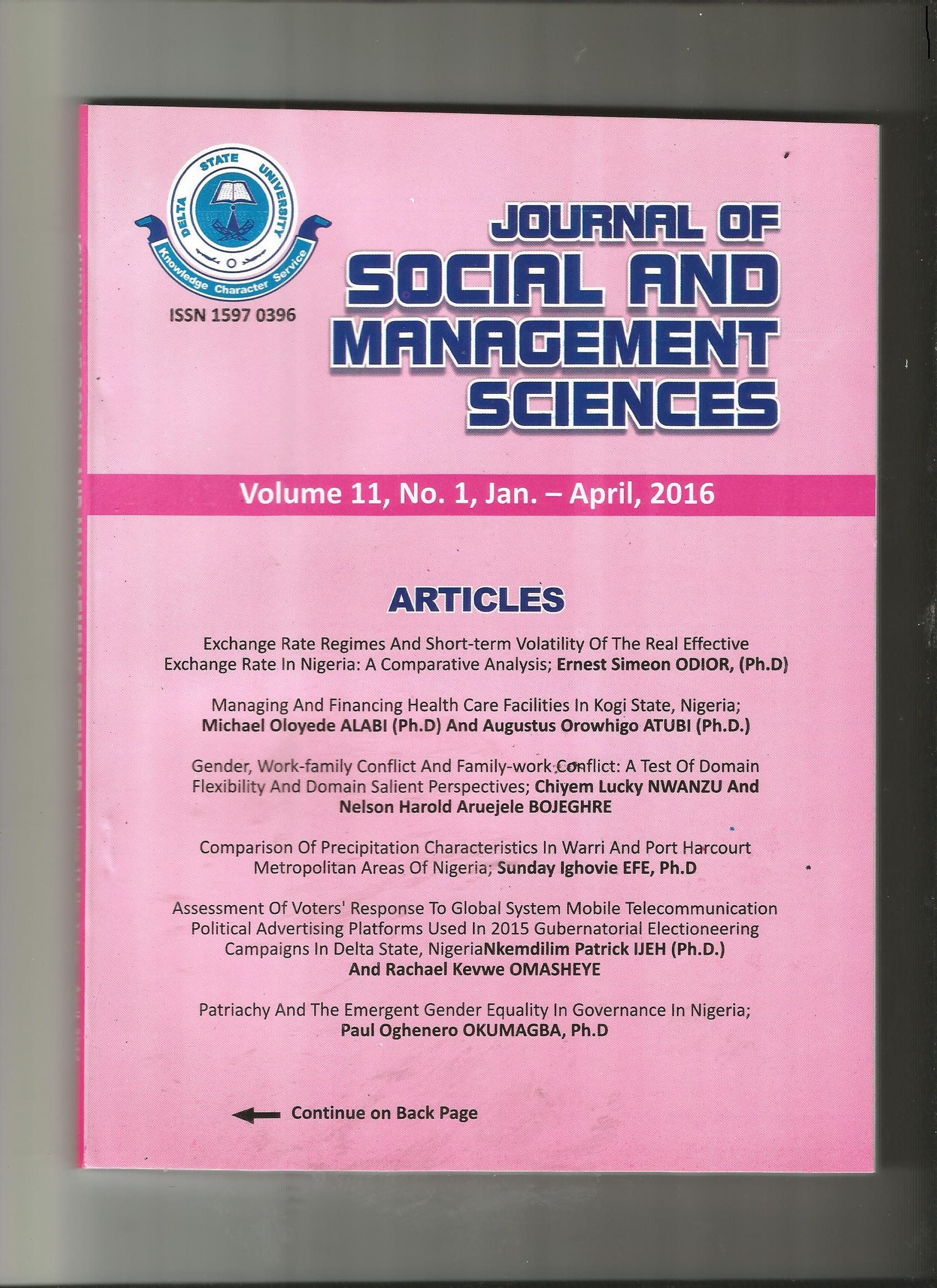
JOURNAL OF SOCIAL AND MANAGEMENT SCIENCES
Journal of the Faculty of Social Sciences, Delta State University, Abraka, Nigeria
ISSN: 1597-0396
DOI: 10.5987/UJ-JSMS
Email: jsms@universityjournals.org
ENVIRONMENTAL AND SOCIAL IMPLICATION OF URBAN SOLID WASTE IN ABRAKA, ETHIOPE – EAST LOCAL GOVERNMENT AREA OF DELTA STATE, NIGERIA
DOI: 10.5987/UJ-JSMS.16.032.1 | Article Number: B62AED13 | Vol.11 (1) - April 2016
Authors: OKUMAGBA Paul Oghenero and OZABOR Famous
Keywords: Abraka, Environmental, Waste
This study is on the environmental and social implication of urban solid waste in Abraka. The study adopted cross sectional research design in which direct field observation and administration of questionnaires were utilized simultaneously. Thus primary data (data generated from the questionnaire administration) and secondary data (data generated from archive of hospitals and waste management department of the Ethiope East LGA) were utilised for the study. The multiple regression test was used for analysis of the data. It was found that; sources of solid wastes include households (83.3%); Market waste (95.3%); industrial waste (59.3%); establishment waste (68%); agricultural waste (50%). Frequency of solid wastes disposal by respondents shows that waste is discarded daily (22%), twice weekly (25.3%), weekly (44.7%), monthly (15.3%). The study also showed that the government is responsible for management of a smaller proportion of the generated waste (5.3%). While private agencies account for management of 24% of waste generated; individuals are responsible for the greater proportion of waste management (70.7%). Methods of waste management in Abraka include open dumping (44.7%), Land filling (5.3%), Incineration (21.3%), Dig and bury (2.7%), Recycling (14%), Composting (12%). More so, effects arising from improper waste management include, Environmental pollution (86%), Health hazards (78%), Economic (44.7%), Social (68.7%) problems. However, the regression model was found to be significant at p (.035) <0.05.It was therefore recommended that both the Government and stake holders must improve on current waste management practice so as to improve the physical and social environments in Abraka.
